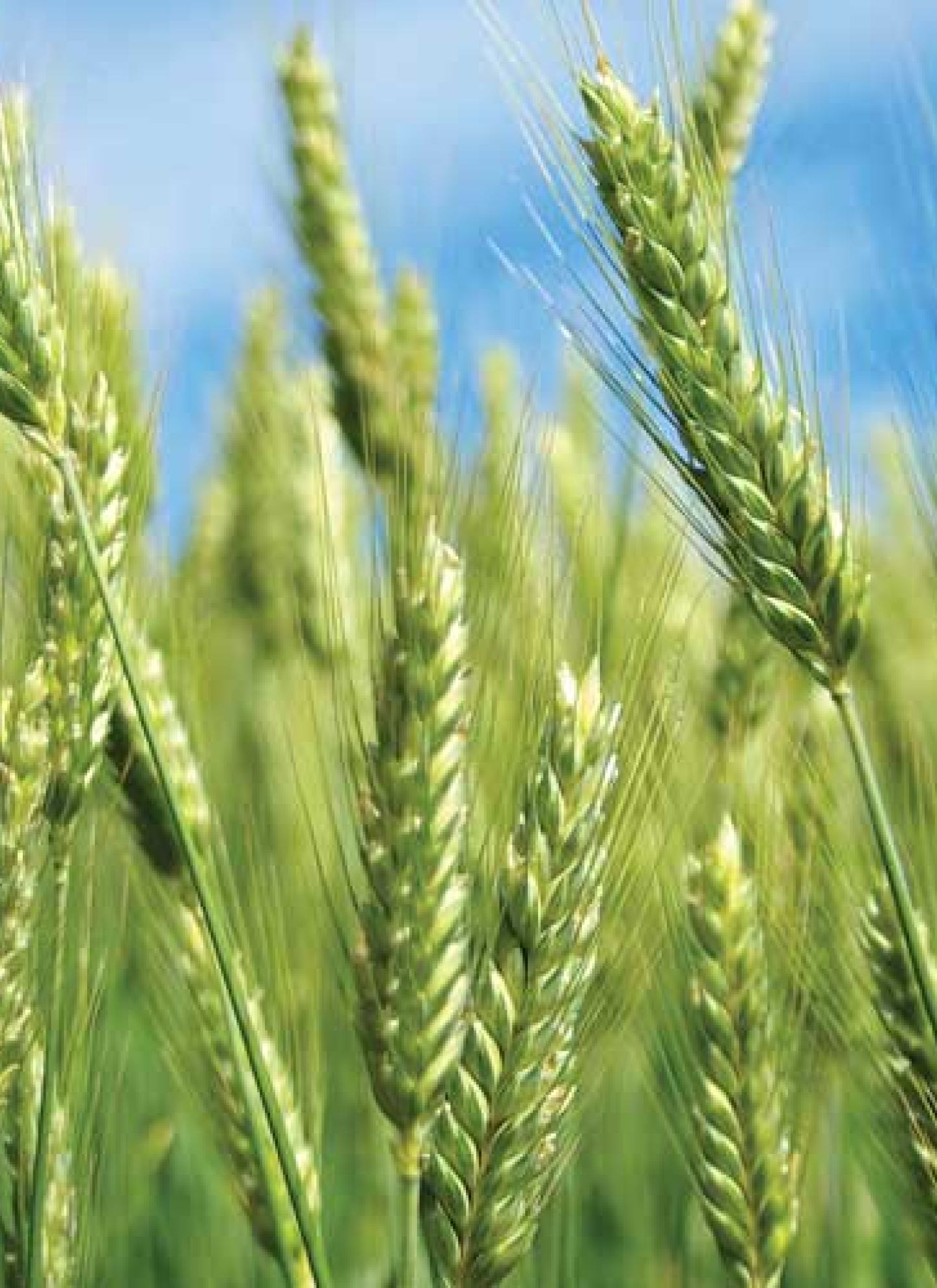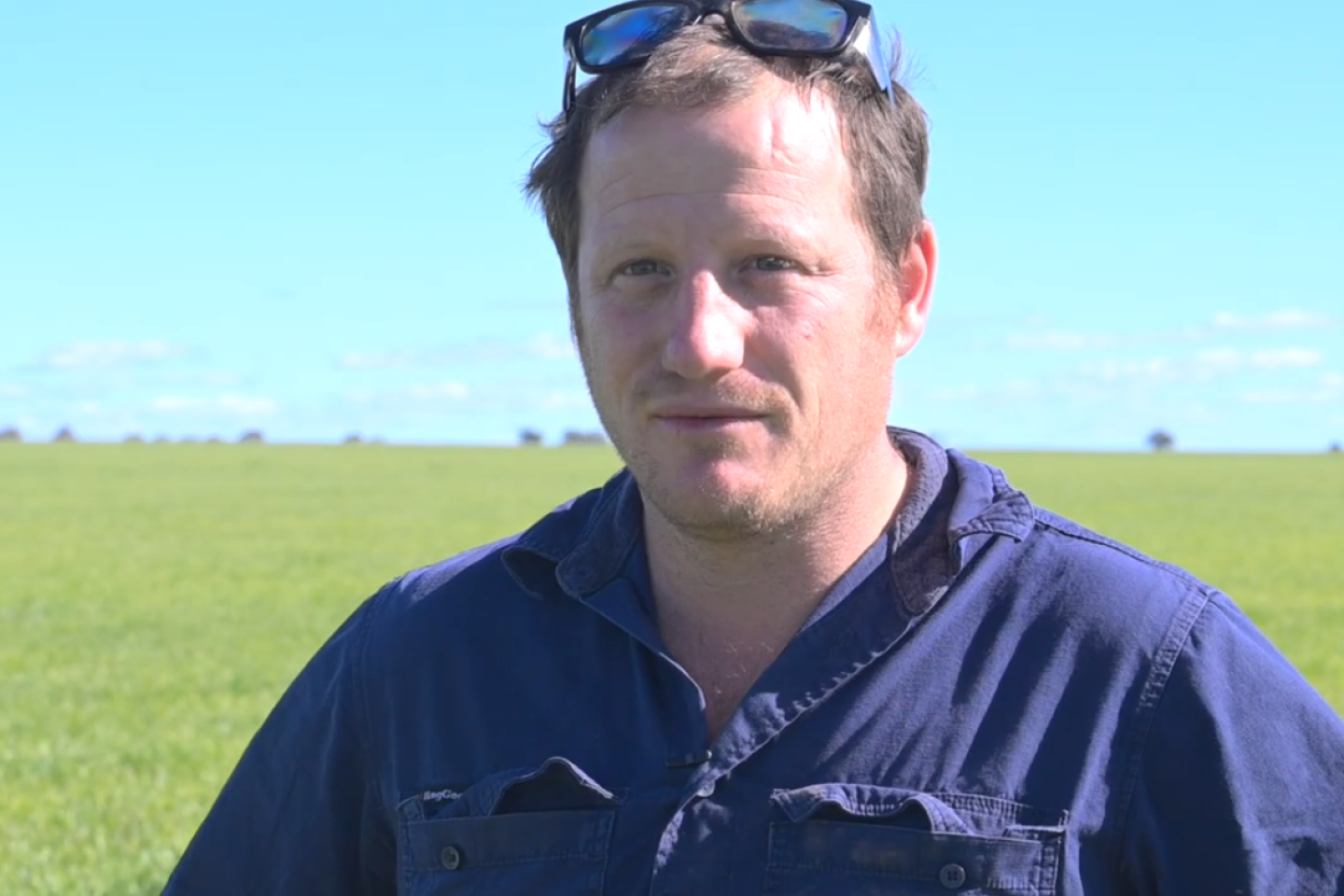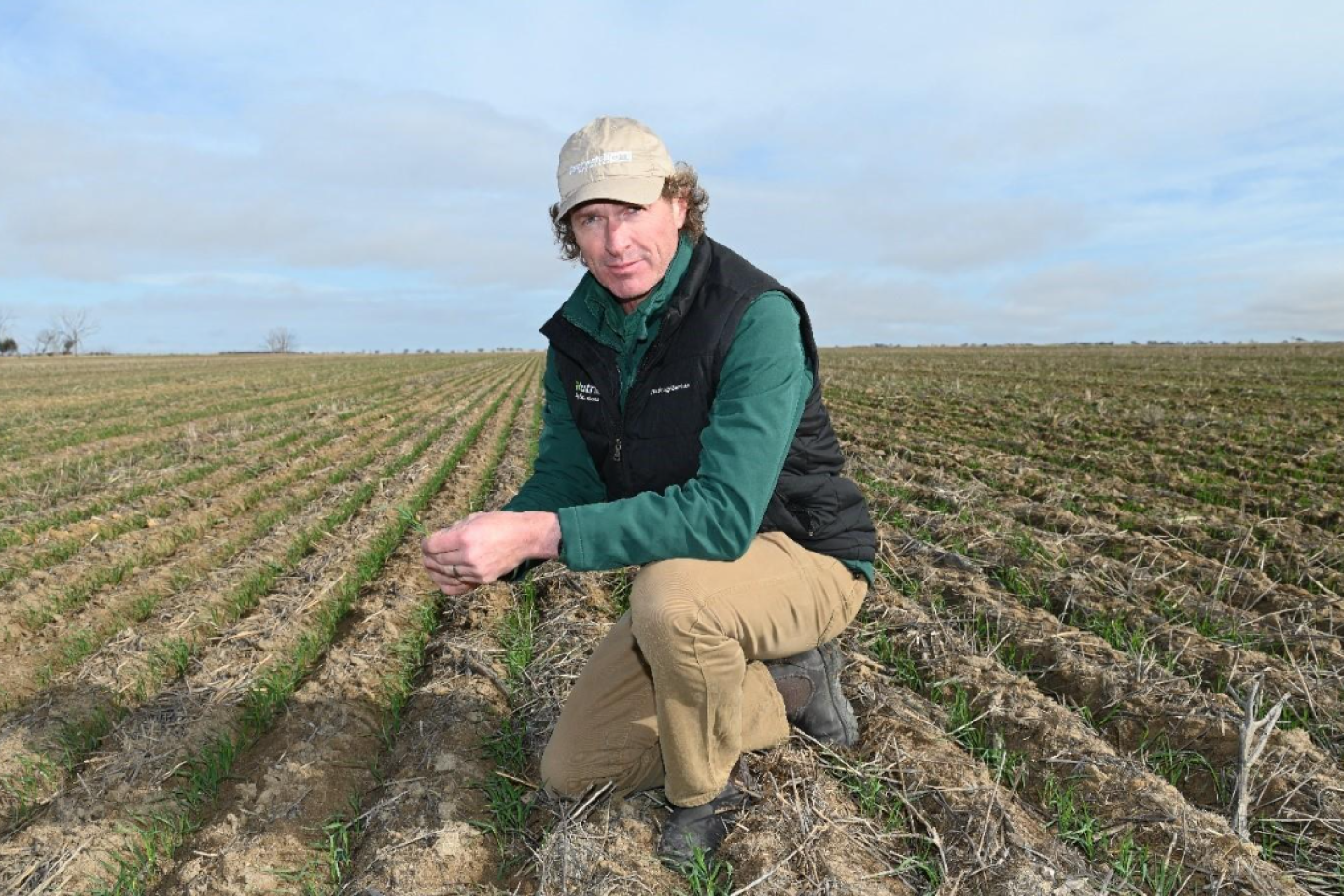The ability of Overwatch® Herbicide to control multiple weed species made it a good option last season for AGnVET Services agronomist Mick Harris for farms throughout central west New South Wales.
Mr Harris is based in Narromine and consults on a range of winter crops including wheat, barley, canola, chickpeas, faba beans, lupins and vetch. He said recommendations on weed control were a major part of his work to ensure farmers maximise their crops yields. "Weeds are part of a bigger puzzle," he said. "We are using herbicides for chemical fallow controlling most of our summer weeds and we're very reliant on our pre-emergents for in-crop weed control. A lot of our selective chemistry, especially on ryegrass, and wild oats are starting to run out of legs, after being used a lot over the years.”He said pyroxasulfone products had been the basis of the pre-emergent program here over the last decade and they were looking at alternatives to fit into the system.“New products may be few and far between and it's our job to find opportunities to incorporate them into integrated weed management programmes for our clients.”
In November 2023 Mr Harris visited a paddock near Warren that had been sown to SunMaster wheat to evaluate the performance of Overwatch® Herbicide which had been applied as a pre-emergent at the start of the season. He said the paddock had grown canola the previous year, a very wet season, and they had expected significant challenges with a range of different weeds coming into 2023. "We selected Overwatch® as the pre-emergent herbicide for ryegrass and a few broadleafs. The paddock had a slightly heavier soil type, higher organic matter and lower stubble load. We figured it was the best opportunity to use Overwatch® Herbicide with the grower for the first time.”A John Deere disc planter was used for sowing the wheat crop, with the main weeds present being ryegrass and milk thistle.“What I'll say is that this paddock's been super clean from the get-go this year - to the point where it was questionable whether we needed to do a post emergent broadleaf spray,”Mr Harris said.
"I thought Overwatch® Herbicide's performance on milk thistle was excellent. Just knowing the background pressure of the paddock, it's done a really good job. I'm interested to see if there's any residual efficacy from Overwatch® through the early part of the summer fallow to see if it keeps it a bit cleaner," he said.“There's obviously extended activity with Overwatch® Herbicide and it offers another mode of action which is what we've been looking for. We were on a good thing with what we were doing in the past and good things don't last forever if you flog them. The aim of incorporating some of these new products, like Overwatch® Herbicide is to also help prolong the life of it and some of the other chemistry."
Overwatch® Herbicide can cause some transient bleaching to the crop under certain circumstances and Mr Harris said they considered a number of factors when deciding to use the product.“We're obviously trying to minimise that bleaching by pulling a few levers,” he said. "We were dealing with a disc planter that doesn't move much dirt, so we went into a paddock with a lower stubble load and a heavier soil type. As we wanted a situation where we'd see less movement of product back into the planting furrow. He said the seed was also planted at a depth of 3 cm to try to provide physical separation between the wheat seed and the herbicide. "The only place we saw any real bleaching was on compacted tramlines lines or headlands.”
Overwatch® Herbicide has a unique mode of action where certain weeds such as ryegrass germinate and then turn a magenta or pink colour as it takes up the herbicide.“As part of my agronomy services I do pretty extensive establishment checks and counts and I get up close and personal with the crop,”Mr Harris said. "The symptoms on the ryegrass are pretty distinct. The ryegrass will go a bright pink for a matter of days before it dies down.”Overwatch® Herbicide is registered on wheat, barley, canola, faba beans and field peas. Mr Harris said he is considering using it on other crops for his clients.“The two that particularly interest me are wheat and faba beans. I feel like it's got a real fit. I'm excited about faba beans with the ryegrass and broadleaf control it can offer in that crop.”



